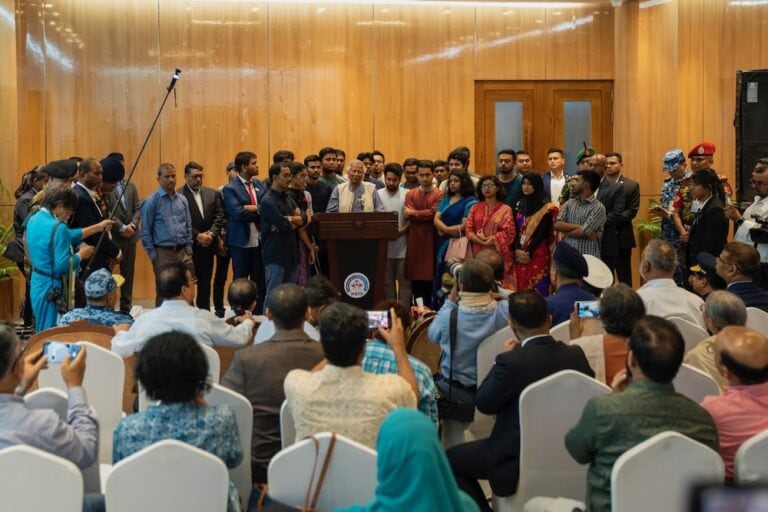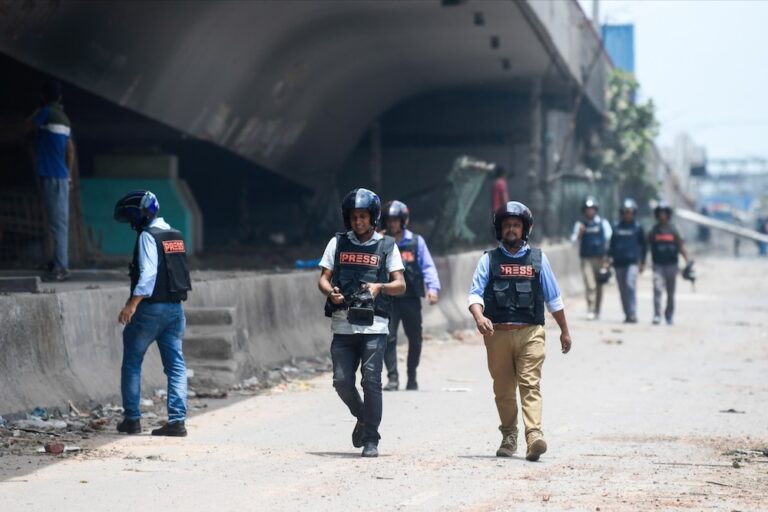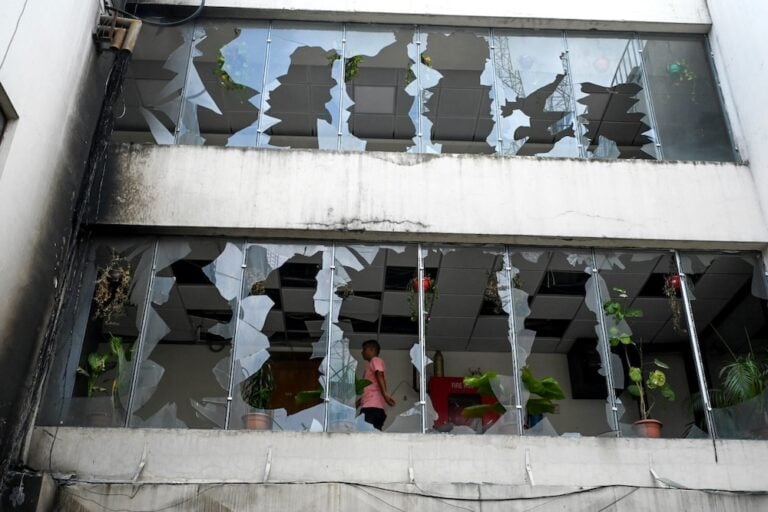(Media Watch/IFEX) – The Bangladesh Press Council has introduced a twenty-two-clause revised code of conduct for journalists, newspapers and news agencies prohibiting any campaign against the liberation war or communal harmony. “The spirit and ideals of the independence and the liberation war must be upheld and there could be no campaigns against the spirit,” states […]
(Media Watch/IFEX) – The Bangladesh Press Council has introduced a
twenty-two-clause revised code of conduct for journalists, newspapers and
news agencies prohibiting any campaign against the liberation war or
communal harmony.
“The spirit and ideals of the independence and the liberation war must be
upheld and there could be no campaigns against the spirit,” states the first
clause of the code, formulated under Article 11(B) of the Press Council Act.
The code states that communalism must be strongly discouraged to uphold
national unity, and the press must refrain from publishing any comments
against any person or community which might hurt or show disrespect to their
caste, creed, nationality or religion.
The Press Council directives, which were approved at the ninth general
meeting of the tenth council last month, also introduced two separate
examples of the oath for journalists and publishers. A brief code of conduct
for the Press was formulated, first in 1983-84 and later updated and revised
in view of the changed political situation in 1993.
The new code of conduct states that the media is free to publish any report
which attracts or influences people, but reports must be prepared keeping
people’s personal rights and sensitivities in mind. “Rumours or unconfirmed
reports must be identified and if they are considered not suitable for
publication, their use must be refrained,” it states. The code warns that no
news with dishonest and baseless contents or including attempts at breaching
trust can be published. The code allows the press and journalists to express
their own views on any controversial issues but cautions against distorting
the facts either in the headlines or bodies of news items.
It states that journalists will be protected from any “adverse
eventualities” for news items published with good intention and based on
credible information. The code states that reporters must be cautious about
the justifiability of their reports and adequately back-up information to
ascertain the truth. It also directs the press to be cautious before
publishing reports on male-female relations or involving women alone. “It is
more immoral to publish a malevolent report than to publish a non-malevolent
wrong report” it states. The code states that if any person protests that he
has been affected by a wrong report, the editor must publish the corrected
report, regretting the mistake, on the same page where the original report
was first published. It states that if the published news turns out to be
harmful or improper, it must be immediately withdrawn, corrected, and
include an explanation, and in such cases the concerned newspaper must
apologise.


